Mahara
October 2, 2023
Author: Claire Storr You might be asking, what is Mahara? If you are, Mahara is the University’s ePortfolio platform and can be accessed via mahara.nottingham.ac.uk. To login, use your University of Nottingham username and password. There is no need to request an account. It will create one for you when you log in for the …
Moodle 4.1: Introducing the Peer Assessment Activity
July 25, 2023
As part of the 2023 upgrade to Moodle 4.1, a new activity will be introduced which allows academics to run peer assessment tasks in their Moodle module. The new activity is called Peer Assessment. The Peer Assessment activity is essentially a group assignment submission combined with peer grading, allowing students to assess each other for …
Facing the Future of Teaching in Higher Education
July 21, 2023
The Learning Technology Team recently had the pleasure of supporting Teachfest (University Park), and the theme for this year was ‘Facing the Future of Teaching in Higher Education’. The Teachfest events have an informal atmosphere and provide opportunities for educators to share their practices, discuss and reflect on teaching and learning experiences, and exchange ideas in …
Moodle 4.1: Moodle board and the opportunities for teaching and learning
July 18, 2023
Moodle board introduces new opportunities for interaction, providing students with a versatile tool for sharing ideas and group work. Columns are set up on a virtual board to create a structured framework for students to add their contributions, in the form of post-it notes. The board provides a platform for synchronous and asynchronous activities, featuring …
Downloading Feedback From Your Assignments
July 11, 2023
At this time of year students will be looking to download and view their feedback from assignment submissions. We recommend that you save a copy of all your feedback for future reference, in order to plan for future assignments, or revise for exams. You might also want to provide evidence for future job applications and …
Implementing UDL 3: Multiple means of Action & Expression
June 2, 2023
If you’ve read any of our previous blog posts on Universal Design for Learning (UDL) or encountered it somewhere else, then you’ll know there are three main principles of the UDL Framework, developed by CAST. Each UDL principle is designed to help academics and others involved in teaching to improve how we present information, engage …
Implementing UDL 2: Multiple means of Representation
May 25, 2023
If you’ve read any of our previous blog posts on Universal Design for Learning (UDL) or encountered it somewhere else, then you’ll know there are three main principles of the UDL Framework, developed by CAST. Each UDL principle is designed to help academics and others involved in teaching to improve how we present information, engage …
Implementing UDL 1: Multiple means of Engagement
May 19, 2023
If you’ve read any of our previous blog posts on Universal Design for Learning (UDL) or encountered it somewhere else, then you’ll know there are three main principles of the UDL Framework, developed by CAST. Each UDL principle is designed to help academics and others involved in teaching to improve how we present information, engage …
Some advice on preparing for exams
May 16, 2023
It’s that time again, when students are preparing for exams and for submission of coursework. We’ve published some good advice in the past on assessment prepartion which might be relevant again this year, and we’ve added some more resources that might be useful: Preparing for and revising for examinations, presentations and coursework. Revision and examinations …
Turnitin: what does the % similarity score really mean?
May 9, 2023
At the University of Nottingham, as elsewhere, student assignment papers are submitted to the Turnitin service. This produces a Similarity score and report but it doesn’t indicate plagiarism or a lack of academic integrity. What Turnitin does is check a student’s work against a database of previous submissions, web pages and journals. If there are …


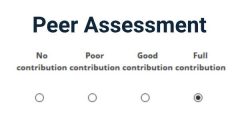
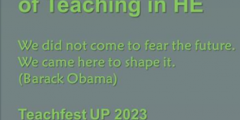

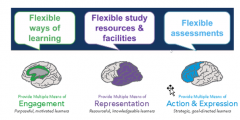
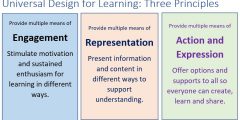
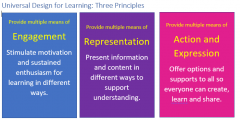

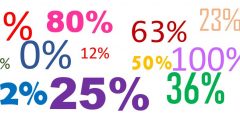
Recent Comments